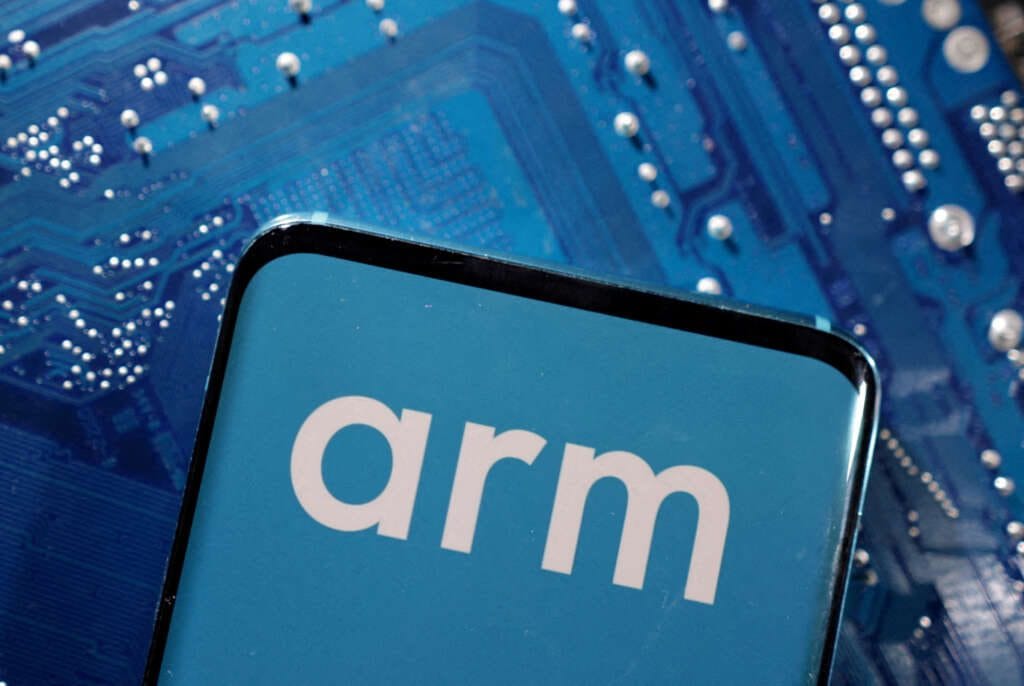
NEW YORK (Reuters) – Chip designer Arm Holdings Plc secured a $54.5 billion valuation in its U.S. initial public offering (IPO) on Wednesday, seven years after its owner SoftBank Group Corp took the company private for $32 billion.
The IPO represents a climb-down from the $64 billion valuation at which SoftBank last month acquired the 25% stake it did not already own in the company from the $100 billion Vision Fund it manages.
Yet even with this lower valuation, SoftBank fares better than its $40 billion deal to sell Arm to Nvidia Corp, which it abandoned last year amid opposition from antitrust regulators.
Arm priced its IPO at $51 per share, at the top of its indicated range, raising $4.87 billion for SoftBank based on 95.5 million shares sold, the company said on Wednesday. Reuters first reported on Arm’s decision on the pricing.
Arm’s shares are scheduled to start trading in New York on Thursday.
Arm has already signed up many of its major clients as cornerstone investors in its IPO, including Apple, Nvidia, Alphabet, Advanced Micro Devices, Intel and Samsung Electronics.
Reuters was first to report on Tuesday that Arm received enough backing from investors to secure at least the top end of the price range between $47 and $51 per share in its initial public offering (IPO), including the possibility of the share sale being priced above range.
Arm launched its IPO marketing efforts last week, seeking to convince investors it has growth ahead of it, beyond the mobile phone market, which it dominates with a 99% share.
Weak mobile demand during a global economic slowdown has caused Arm’s revenue to stagnate. Overall sales totaled $2.68 billion in the 12 months to the end of March, compared to $2.7 billion in the prior period.
Arm told potential investors in New York last Thursday that the cloud computing market, of which it has only a 10% share and therefore more room to expand, is expected to grow at an annual rate of 17% through 2025, partly thanks to advances in artificial intelligence. The automotive market, of which it commands 41%, is forecast to expand by 16%, compared with just 6% growth expected for the mobile market.
Arm also told investors its royalty fees, which account for most of its revenue, were accumulating since it started collecting them in the early 1990s. Royalty revenue came in at $1.68 billion at the latest fiscal year, up from $1.56 billion a year before.
An area of scrutiny for investors has been Arm’s exposure to China, given geopolitical tensions with the United States that have led to a race to secure chip supplies. Sales in China contributed 24.5% of Arm’s $2.68 billion revenue in fiscal 2023.
(Reporting by Echo Wang and Anirban Sen in New York; Editing by Sandra Maler, Greg Roumeliotis and Richard Chang)


